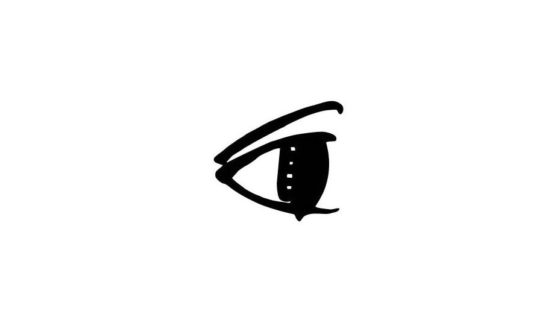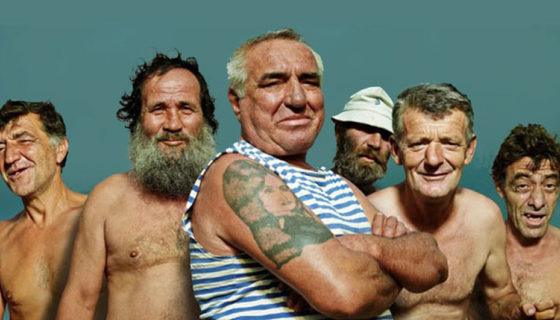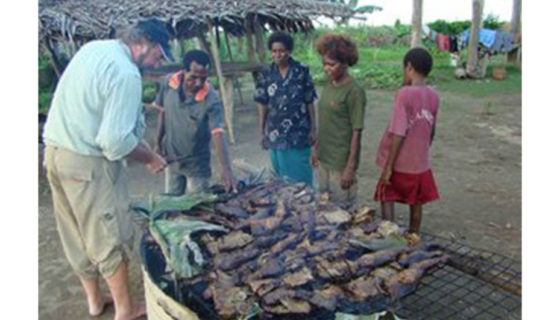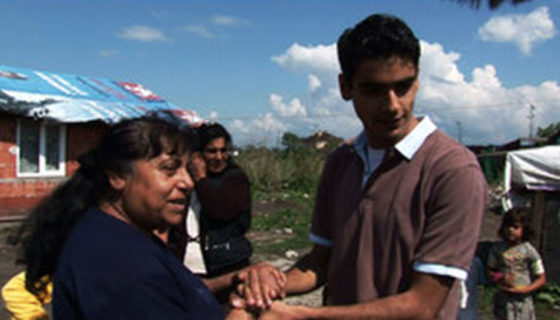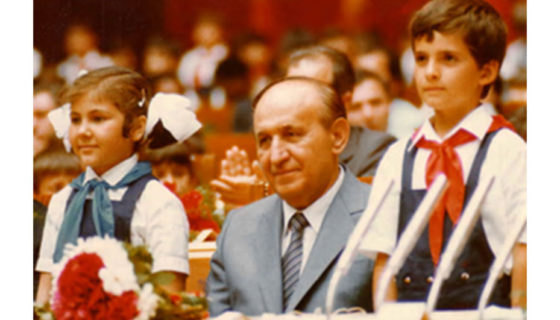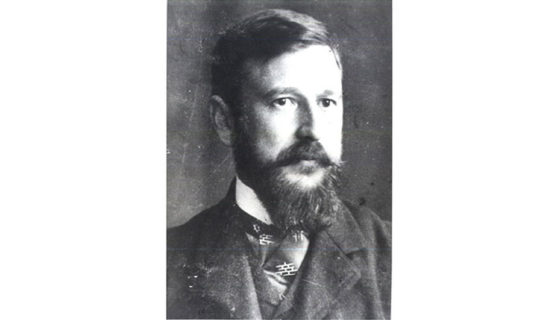Documentary films
- filmarchive cinema. The cabin is 1.30m at 1.50m. This tiny space has accommodated “the whole of her Italy”, while Nelly has never actually been in Italy. The film shows Nelly’s tragically belated meeting with Italy – when she’s 78 years old, visiting the places she has only seen on film. She’s finally with “her princes” Ettore Scolla and Mario Monicelli. With a tender and merciless sentimentality the film reveals this belated dream come true.
- Deliormana is a place in North East Bulgaria. The ethnic and religious problems which have accumulated over the years are reflected deeply in the hearts of the people in this region. The question is who does this ancient land of the Thracians belong to now? In its examination of the visitors to this holy place the film suggests that everyone has the rights to worship their own god in their search for religious and ethnic tolerance.
- The Last Black Sea Pirates swim in testosterone and rugged tenderness in a land of wilderness and legends, far from civilization. For 20 years, Captain Jack The Whale and his crew have been drinking, dreaming and hunting for a treasure buried in the gully of Karadere, the pristine beach they call home. But someone else has got wind of Karadere’s treasures. When news of imminent change begin to find its way to this remote oasis, the pirates' world begins to unravel. Doubts erode the foundations of trust, conflicts brew, tensions are on the rise. In this crisis, emerges a contemporary fairy tale about the treasures we hunt and those that we find.
- A carpenter, a retired teacher and a machine-operator attempt at squaring scores with the mob. The three of them are on trial at present. What are the reasons for people to leave the passive law and authorities behind and to search for revenge and protection?
- The craving for freedom makes Lyubo flee Bulgaria. Running away is rather a matter of instinct than choice. Lyubo manages to get beyond the border line during a popular gathering at Kalotina. He crosses the whole territory of former Yugoslavia experiencing some incredible adventures and after staying in a camp in Italy, Lyubo heads for Australia where he lives for some time being involved in risky crocodile hunting. He comes across the book “The River of Gold”, which is the turning point in his life. Freedom and gold are Lyubo’s destiny, and as long as he lives, he will be part of this adventure.
- Ilia was a baby, when he was given up for international adoption, while our crew was shooting at an orphanage in 1993. Two decades later the young Frenchman arrived in Bulgaria to reunite with his mother and seven siblings. The film is an account of these moments overbrimming with emotions, amazement and mistrust, a surprise of the clash of cultures... The documentary poses also questions about what has happened to Branimira-Брани, John-Petko, Natalie-Danka and Joseph-Boian, Maria and Dian, who were adopted by foreigners before our eyes, which was captured by the camera. Bulgaria is the sole EU Member-State, giving children for international adoption.
- At one of the first demonstrations after November the 10th 1989, a man carried a long stick with the portrait of Todor Zhivkov upside down. In this ritual act of desecration we can find remains of the ancient craving for revenge of the slave to his fallen master that awakens with each social cataclysm. An era that some historians called the “Zhivkov era” was going away. As representatives of an immature civil society we tried to blame the twisted socialist image on the mirror we all looked at. That mirror was called Todor Zhivkov.
- Was Dr. Christian Rakovsky a statesman, a politician or a diplomat? Or was he more of a statesman than a politician or more of a diplomat than a statesman and a politician? Or was he all in one? Who was he: A Romanian national of Bulgarian extraction, educated in France and befriending Russians? The documentary provides answers to all these questions and many more.
- The world was shocked by the actions of a single Bulgarian. A month after the death of Charlie Chaplin, Kuncho Kunchev disinterred his body. Was that good or was it bad, or was it indeed the thruth?

